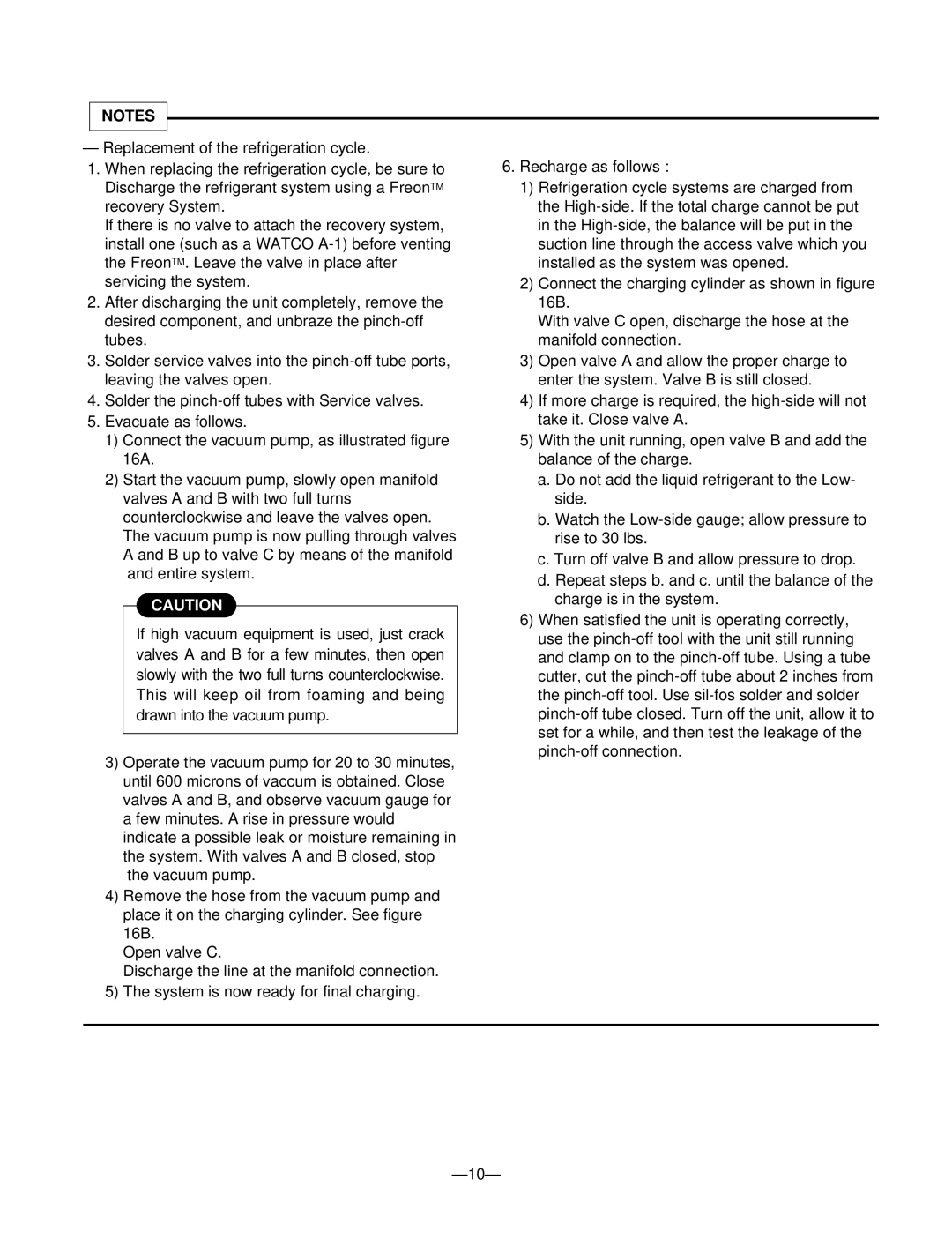ZQ10 A10B specifications
The Friedrich ZQ10 A10B is a prominent industrial solution designed for efficient and reliable air conditioning and heating applications. Engineered with advanced technologies, this unit stands out in its category due to its versatility, energy efficiency, and user-friendly features.At the heart of the ZQ10 A10B is its robust refrigeration cycle, utilizing an environmentally friendly refrigerant that aligns with modern sustainability practices. This refrigerant not only minimizes the environmental impact but also ensures optimal performance across varying temperature conditions. The system's high cooling and heating capacities make it suitable for both residential and commercial settings.
One of the key characteristics of the ZQ10 A10B is its smart inverter technology. This innovation allows the unit to adjust its power consumption based on the current load requirements, providing significant energy savings over traditional fixed-speed systems. By operating at variable speeds, the system enhances comfort levels while reducing operational costs, making it an attractive option for budget-conscious consumers.
Moreover, the ZQ10 A10B integrates a sophisticated microprocessor control system, enabling precise temperature regulation and simplified user interaction. This intuitive control interface allows users to easily program settings and monitor system performance, leading to a higher degree of comfort and convenience.
The unit is also designed for quiet operation, featuring a sound-dampening casing that minimizes noise levels. This is particularly advantageous in residential environments where noise disturbance can be a significant concern. Additionally, the ZQ10 A10B is equipped with advanced filtration technologies that improve indoor air quality by effectively capturing dust, allergens, and other airborne pollutants, ensuring a healthier living space.
Durability is another hallmark of the Friedrich ZQ10 A10B. Built with high-quality materials, the unit is resistant to corrosion and wear, promising longevity and consistent performance throughout its lifecycle. This resilience makes it a reliable choice in harsh environmental conditions.
Integrated with smart connectivity features, users can control the ZQ10 A10B remotely via smartphone applications, allowing for greater flexibility and ease of use. This integration aligns with the growing trend of smart home technology, appealing to tech-savvy consumers looking for greater control over their heating and cooling systems.
In conclusion, the Friedrich ZQ10 A10B emerges as a leading solution in the HVAC market, combining innovative technology with user-focused design. Its energy efficiency, durability, and advanced features make it a smart investment for anyone looking to enhance their home or business climate control systems while keeping an eye on environmental impact.

